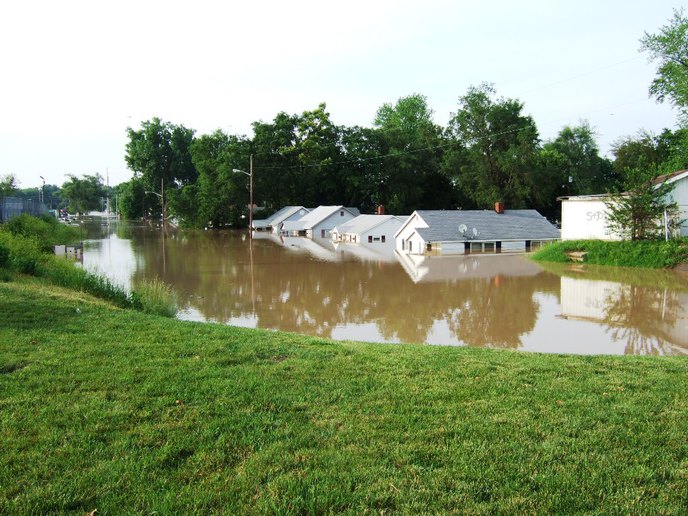Unheard of? Where have you been? Anyone that makes a payroll has been dealing with this for years.
I'm sure lots of people thought they could just mail in their keys and walk away from their home and debt but reality is you still owe a substantial amount of money on the home and all that paperwork that you signed on closing is your agreement to pay that debt back. Its just a like having your car repossessed - you still owe the difference between what the car was worth (or sold for) and what was owed.
Many times a bank will write off the loan if they know they are dealing with deadbeats because as the saying goes you can't get blood out of a turnip. But middle classed homeowners with substantial incomes will be paying on those debts for years. They can't declare bankruptcy or only get limited relief from bankruptcy because their income is substantial enough to make the payments. Some states, such as California, are "non-recourse" and don't allow deficiency judgments. But, even there, if the original loan was refinanced, some or all of it may be subject to claims.
https://www.credit.com/debt/understanding-your-foreclosure-rights/
Foreclosure actions wipe out some of the property owner?s debt, like the original mortgage (taken out at the time of purchase), home equity loans (HELOCs), and second mortgages. However, property owners are still obligated to pay HELOCs and second mortgages off in full if they are not paid out of the foreclosure proceeds.
In markets where there has been a significant drop in real estate prices, some properties will be sold for less than the balance owed on the original loan. If there is no insurance protecting the mortgage holder (e.g., private mortgage insurance, or PMI) for the difference between what is owed on the property and what it sold for, a court could enter a deficiency judgment against the property owner. Deficiency judgments obligate the property owner to repay the difference and give mortgage holders the right to collect the remainder of the debt owed from any other assets the property owner may have.
From CNN:
Because of falling home prices, borrowers who always paid their mortgage but who have run into unforeseen circumstances -- like unemployment or a job transfer -- can no longer sell their homes for what they owe. As a result, they are being forced to short sell or foreclose and are getting caught up in deficiency judgments.
"After the banks foreclose, it's very common now to have large deficiencies with houses not worth the balances owed," said Don Lampe, a North Carolina real estate attorney.
Lenders mostly declined comment. Although Corey's lender, BB&T did indicate it was pursuing more deficiency judgments.
"They follow the rise and fall of foreclosures," said the spokeswoman, who would not discuss Corey's account.
Can they come after you?
Whether banks can and will pursue deficiency judgments depends on many factors, including what state the borrower lives in and whether there's a second mortgage or other liens. But if borrowers ignore the possibility of deficiencies, it could haunt them.
"Once they have a judgment, they can pursue you anywhere," said Richard Zaretsky, a board-certified real estate attorney in West Palm Beach, Fla. "They can ask for financial records, have your wages garnished and, if you fail to respond, a judge can put you in jail."
In the case of foreclosure, lenders can pursue deficiencies in more than 30 states, including Florida, New York and Texas, according to the U.S. Foreclosure Network, an organization of mortgage law firms.
Deficiency judgments on short sales and deeds-in-lieu can happen in many more places. In these cases, extinguishing the debt is often a matter of negotiating with the bank.
But even when lenders are willing, many borrowers may not be aware that they have to ask for release. So, if you are pursuing a short sale, be sure your attorney asks the bank to release you from any further obligation.
"People shouldn't have a false sense of security that a deficiency judgment may not be later sought," Zaretsky said.
He expects many will be filed over the next few years, based on the fact that banks have sold many of these accounts to collection agencies and other third parties, at discount.
"The parties who bought those notes wouldn't have paid money for them unless they had the intention of acting," Zaretsky said.
http://money.cnn.com/2010/02/03/real_estate/foreclosure_deficiency_judgement/


